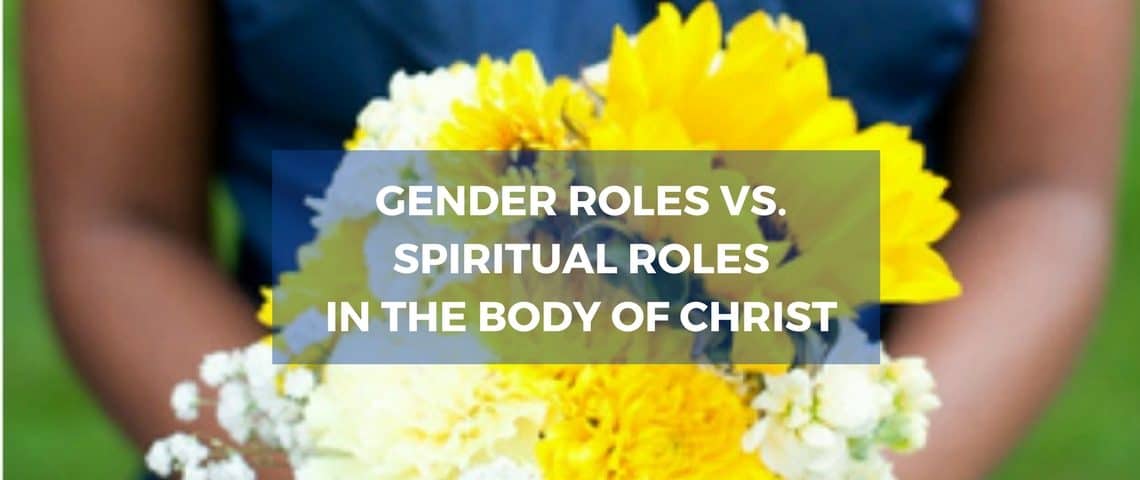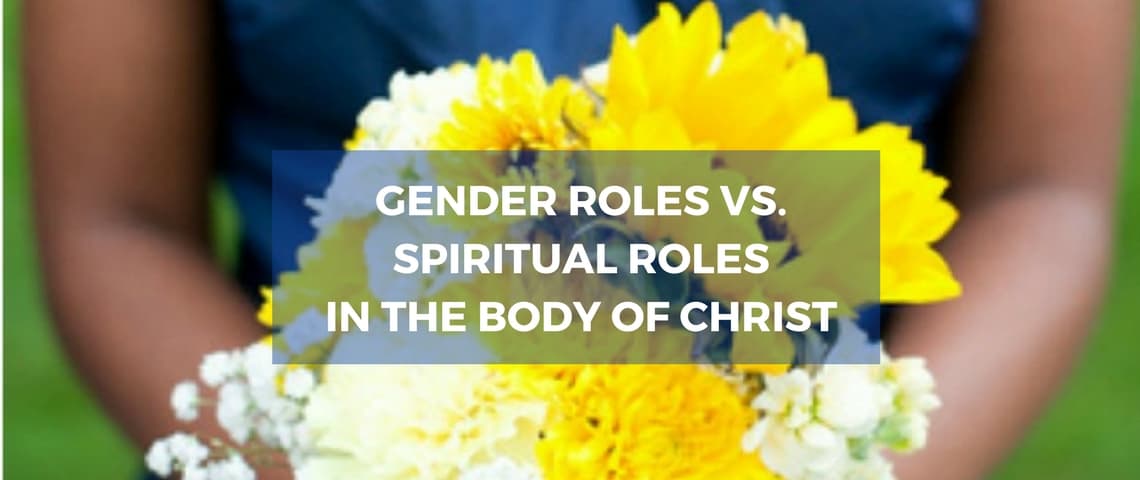The last wedding I was in I got to wear a cute navy dress. I was a bridesmaid for a friend I met through my last job, on staff with a prominent Christian organization. It was fun, (despite the cold weather) and beautiful. However, when I think back to this day, those aren’t the parts that stand out in my mind.
When you’re a bridesmaid (especially a single one), people expect you to be friendly, chatty and all around sociable. Fortunately, I’ve mastered my wittiness when it comes to fulfilling my duty to chat with guests and make them comfortable. However, at this wedding, there was one conversation that made me uncomfortable.
One of the groomsmen found out that I attend a church where my pastors co-lead. Yes, co-lead. They are a husband/wife team and both are lead pastors in our faith community. Apparently, to him this was a big deal, and he decided to call me out on it before we started taking photos. Before even introducing himself, he asked:
“So what’s your church’s position on female leadership?”
Boom. There it was. Why, “it’s nice to meet you too”, I thought. I gave him a pat answer about how co-leading is great because couples are called into ministry together. He poked a few more questions, which I responded to. Finally it came:
“But is it biblical?”
Somehow that word was supposed to challenge the role I get to play in the body of Christ and undermine my beliefs about the role of female leadership at the same time. I felt like it had been used as a weapon against me.
But God doesn’t have a gender. So what are we missing here?
First, let me state that I understand the premise of having a role in a relationship. I come from a high-context cultural background where worldview is largely shaped by one’s role and relationship in a community. The “biblical manhood and womanhood” movement depicts a version of what those roles could look like. This view fails to address role and relationship beyond gender in the entire church. It forgets that we are primarily spiritual beings, and that our physical body (and gender) is secondary.
God is expressed in a complete, perfect relationship of God, Jesus, and the Holy Spirit (the Trinity). It is beautiful and complete. They each have a distinct role and relationship to one another. It makes sense to me, then, that God would create other, equal, complimentary beings to express himself through—Men and Women. Similarly, the Church is meant to be another reflection of this relationship. However, God points to our role and relationship in the Church being defined through a spiritual identity, not a biological one.
Paul puts it this way in 1 Corinthians 12:12-14:
“For just as the body is one and has many members, and all the members of the body, though many, are one body, so it is with Christ. For in one Spirit we were all baptized into one body—Jews or Greeks, slaves or free—and all were made to drink of one Spirit. Even so the body is not made up of one part but of many.”
This purpose of unity is echoed in Acts 2:17, when the prophet Joel is quoted
“‘And in the last days it shall be, God declares,
that I will pour out my Spirit on all flesh,
and your sons and your daughters shall prophesy…”’
God is primarily concerned with our spiritual role and how the Church works together to display the power of the Holy Spirit. Continually, we see that God is pointing to a unification that comes through the Holy Spirit. We are invited into a relationship that is beyond gender, age, ethnicity, class– or what role we hold at church—so we can uniquely contribute to the body of Christ.
Paul also writes in 1 Corinthians 12:
“now there are varieties of gifts, but the same Spirit; and there are varieties of service, but the same Lord; and there are varieties of activities, but it is the same God who empowers them all in everyone. To each is given the manifestation of the Spirit for the common good.”
Recognizing our spiritual role in the body of Christ opens us up to realize that the gifts of the Spirit are for all, and are distributed as God sees fit.
“Church” was never about establishing an organization or institution where one would regulate the role another would play or decide which roles were most beneficial.
Elevating who leads in what role doesn’t seem to be too far off what Jesus’ disciples were asking when they wanted to sit by his side, or the Pharisees’ desire to regulate faith-based law. Jesus rebuked these things, instead valuing humility and servanthood. He stated that heaven wasn’t about position, role or power. So why should the Church be?
1 Corinthians 12 makes it clear that the body needs all its parts to function. When we lose sight of that and start to regulate roles based on gender, race, class or anything other than Jesus and His unifying Spirit we silence voices, we lose parts. We all suffer. Jesus didn’t say that the Holy Spirit was only for the wealthy, educated, or married. He didn’t say his gifts were limited to males or pastors or doctors. Jesus said his Spirit was for all, for each one, so the body would be complete in every way.
That is a Spirit I want to be filled by—a Spirit who says “come” and will exchange flaws and limitations for an empowering presence that gives everyone equal opportunity to relationship and roles in the Kingdom of God.
————————————————————————————
YOUR TURN: What are some ways “church” might look different today if we emphasized spiritual gifts/roles in the body of Christ over gender roles and hierarchy in general?
More on the biblical manhood and womanhood movement here and here.





11 responses to “Gender Roles vs. Spiritual Roles in the Body of Christ”
This is wonderful, Ruthie! I love the way you explained your position.
I’ve come to these things recently, and one of my greatest challenge is conversations like these. I want to be clear and loving, but I also want to spread some of the beauty and freedom that are in God, that I’ve been missing for so long.
The way you’ve done this is winsome, and opens up the opportunity for other conversations.
How easily systematised thinking can become the God. Whether its man/woman or cleric/lay challenges, when we make the flip from serving God to institution we also risk making control above honour.
Lovely post, thank you; all the posts on this site are so gracious. As a male, I am so sorry for the ridiculous and demeaning way so many men treat women – it isn’t right. In answer to your question, I think that if we abandoned hierarchy and focused on the value of the individual and the function they were gifted with we would end up with a believing community that would shine the love and grace of God into the darkness of a hurting world. Blessings!
Lovely reflection. I feel a response post bubbling up inside…. 😉
“Continually, we see that God is pointing to a unification that comes through the Holy Spirit. We are invited into a relationship that is beyond gender, age, ethnicity, class– or what role we hold at church—so we can uniquely contribute to the body of Christ.”
Yes.
Nice job taking us through the make-up of the Body of Christ, Ruthie. Your final question leads me to ponder what a church discussion on ministry might look like.
“We need a preacher. Who’s the best?”
“That would be Mary.”
“You willing, Mary? OK, that’s settled.”
Thanks Tim, for your thoughts! I agree. I think another limitation we see is not acknowledging that people have multiple gifts of the Spirit. We can act on and in each of them at various times. We can have voices teach, pray, sing etc. and it doesn’t need to be their ONLY role. Having this view helps negate a sense of competition or threat. They aren’t taking a role from someone else- we are sharing it as a body, for the body.